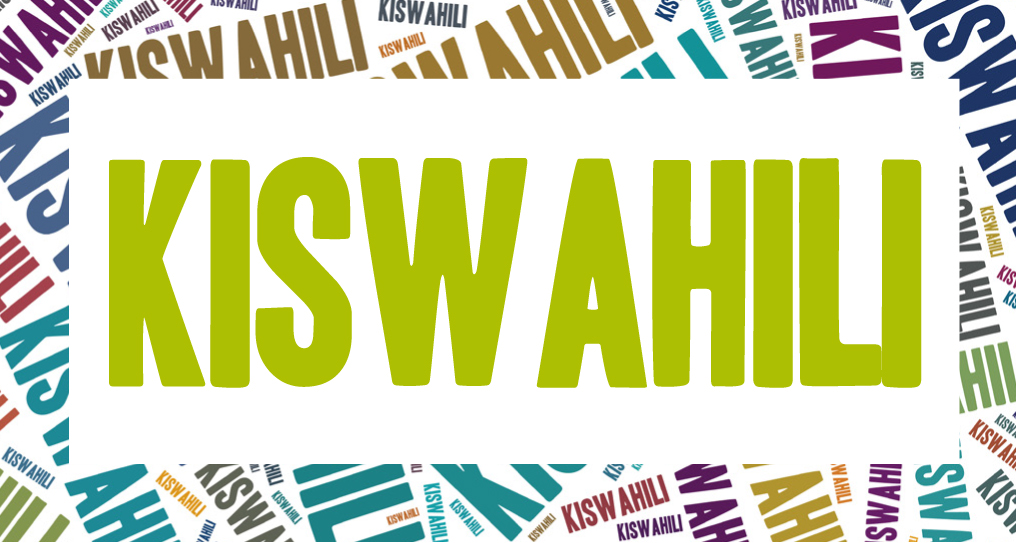Recently I was helping a friend do her curriculum vitae and to my surprise I noticed that she had
written in the CV that she only knew basic Kiswahili. This is despite the fact that my friend has
schooled in Kenya all the way from Kindergarten, Primary school, Secondary school, and
through to a Kenyan university, and, we have been speaking Kiswahili every time we meet. As if
that is not enough, Kiswahili is one of the Kenyan national languages. When I asked her about
this and why she believes she only knows little Kiswahili, her response was that she does not
think she speaks good Swahili.
Her case is similar to many other Kenyans today who do not speak and know Kiswahili, some of
whom went to countries like India for just a week and came back to Kenya with an American
accent, and pretend not to understand Kiswahili. People prefer to speak English to Kiswahili, but
why? Maybe it is because people have grown a dislike for the language, and as a matter of fact, I
believe I am not the only one wondering if Kiswahili language is slowly and steadily being
wiped out of our mouths and ears.
I have had the opportunity to work with little children as a swim instructor and I realized that
children preferred that I instructed them in English rather than Kiswahili. Not that they do not
understand Kiswahili, they only dislike it and pretend not to understand the language. In fact,
whenever I spoke to some of them in Kiswahili it was as if I was speaking a foreign language.
They would just stand there and look at me in amazement, waiting for me to repeat what I had
just said in English. And if I ignored them, they would still do the same thing, and that meant
they understood Kiswahili so well. Some though would not go without warning me that their
parents did not want them to speak Kiswahili.
I am sure Kiswahili is still a national language, or has something changed? On July 4, 1974
President Jomo Kenyatta declared Kiswahili a Parliamentary language, and this was positive for
Kiswahili as there were positive steps towards making it a national language. With the
promulgation of the new constitution in 2010, Kiswahili became one of the two official
languages in Kenya. So why is it that parents do not want their children to speak Kiswahili? In
fact it seems like it is illegal that they are even taught Kiswahili in school and if at all they could,
then this language could just be scrapped off the syllabus. They would rather have their children
taught other foreign languages like French, German, and even Chinese at the expense of
Kiswahili.
Not long ago, the Nation Media Group announced the closure of some stations, and including
QTV. When I heard of this my first reaction was like, Kiswahili kwisha because this had been the
only television station broadcasting all its programs in Kiswahili, and where the language
mattered. But why did it have to be shut down, is it because Kenyans do not feed on Kiswahili
content and the station did not have viewers?
There are several radio stations broadcasting in Kiswahili or rather claim to be broadcasting in
Kiswahili but in the real sense it is never pure Kiswahili but a mixture of English and Kiswahili,
in most cases using sheng’. There is also only one daily newspaper published in Kiswahili but
with just some few pages as compared to those published in English. Kiswahili too is still not
recognized as a language of proceedings in the High Court and the Court of Appeal, and it is
always insisted that any evidence adduced in Kiswahili be translated into English.
It is quite evident that Kiswahili is not treated seriously in the nation, or like one of the national
languages and is instead only confined to casual interactions. That is also why you rarely have
interviews conducted in Kiswahili and the language spoken in public offices, because everyone
prefers and understands English better. In the parliament we only have a few legislators who
speak the language, and when they do many people complain of having not understood what they
said. In schools Kiswahili is taught as a language in the Kenyan syllabus yet neglected as a
language of instruction in any other subject other than itself.
Kenyans do not like Kiswahili any more, and this language is slowly becoming extinct unless
something is done and soon.
A writer with the Writers Guild -Kenya. Email- omondifrankline@ymail.com











1 thought on “Who Buried Kiswahili Language in Kenya without our Knowledge?”
I agree with your observation 100% Franklin. The problem with Kenyans is that we do not value our heritage. If you speak swahili people think you are illiterate. African Americans wish they had a way to connect with Africa by speaking an African language while we take our heritage and beautiful language for granted. I fear Swahili will soon be a forgotten language in Kenya.